Why do some Azerbaijani parents refuse vaccinating children?
To vaccinate a child or not?That’s a decision moms around the globe face, and Azerbaijan is no exception.
The state, represented by the Ministry of Health, answered this question positively:‘Children are first vaccinated in the maternity ward of a hospital. Thereafter, you receive a phone call from the outpatient clinic and are asked to come in for free child vaccinations.’
Today, the national immunization schedule includes vaccination against 11 types of diseases, including: Hepatitis C, poliomyelitis, tuberculosis, tetanus, pertussis (whooping cough), diphtheria, measles, parotitis (mumps), rubella (MPR), pneumococcal and haemophilic infections. Vaccines against the first three diseases are administered to all new-borns within 12 hours of birth. Vaccination is free of charge in state-run outpatient clinics, while in private medical centers they are quite expensive.
[toggle title=”What is vaccination: background”]
Vaccination is the administration of antigenic material against certain disease or attenuated virus with the aim to stimulate an individual’s immune system to develop adaptive immunity to a pathogen.
British physician, Edward Jenner, was the first to apply vaccination in 1796. He ‘infected’ people with less virulent cowpox so as to save them from smallpox, which was a real disaster at that time.
According to the World Health Organization (WHO), vaccination saves 2,5million lives worldwide each year-that’s how much the rate of mortality caused by those diseases has dropped since 2007. Anti-pertussis vaccination rate increase from 20% in 1980 to 79% in 2006 worldwide, whereas immunization against Hepatitis B and rubella is still underestimated in many countries.
Vaccination has allowed so far to almost completely eradicate 20 diseases, including smallpox that killed millions of people. It was eradicated back in 1979.
[/toggle]
However, not all parents vaccinate their children. On social media, you will frequently come across some moms who are flat-out against vaccination. They warn others about the terrible consequences of vaccination and how to avoid them:
‘You should file a vaccination exemption; it’s true that you will be dissuaded and threatened that if your child is infected with the disease, you will be held liable for that. If there are problems with a delivery record, you can pay to settle it and they will write that it has been done. Many people do this nowadays. Don’t cripple your children. All of that is only business. They don’t actually care for our children. The more we get ill, the more they line their pockets’.
‘A baby is born infection-free, but then, some weakened poliovirus vaccine is dripped into the mouth. I don’t know what effect it is going to have on a baby, but I think it’s wrong. Vaccine-associated paralytic polio may develop from a live polio vaccine. I’ve heard of a child in Ukraine that developed the disease and also infected another child. And all that was due to a vaccine.’
“The disadvantage of medics is that once you come to them with a child, the first thing they ask is whether the child has been vaccinated or not. And when they learn that it hasn’t been vaccinated, they start scaring you.”
“My husband and I are vaccinated, and our child did not go anywhere until she was 1.5 years old, only to close relatives and no crowds of people. All her toys are made of quality materials; I feed her only with natural, organic products. We don’t even have a mercury thermometer at home, and there’s nothing to break. So, why should she get sick?”
To vaccinate or not to vaccinate?
How many anti-vaccinators are there in Azerbaijan? It will be quite logical to determine it by the number of those who got exempted from vaccination. But who keeps those statistics, if parents ‘arrange things with money’, as is recommended on disput.az forum? By the way, why are they doing it?
As it is stated in the Law on compulsory medical check-up, vaccination is mandatory. Children have the same right to be protected against diseases as adults and they shouldn’t be deprived of it. Parents, who refuse vaccination, are required to submit a written explanatory note. You can’t just write ‘I don’t want to’ in the ‘reason for refusal’ section. Vaccination and pandemic prevention are tasks of national importance = they can’t be performed based on someone’s will or unwillingness,” says Nasib Quliyev, Azerbaijan’s chief Paediatrician.
So, instead of saying ‘I don’t want to’, there are either allergies, or some other counter-indications (it’s called false rejection) on a record card. And it’s not necessarily that a physician has taken a bribe for that. He probably understood that it was impossible to force someone to get vaccinated and, at the same time, he didn’t want to ‘spoil’ the records, since higher authorities require everyone to be vaccinated. Therefore, doctors have chosen the easy way.
[toggle title=”Statistics”]
According to the State Statistics Committee data, the following diseases were reported in 2000: diphtheria – 2 cases; pertussis – 11cases; tetanus -3, measles – 212; rubella – 218; epidemic parotitis (mumps) – 6,859. According to 2015 data, there were no cases of diphtheria, measles, rubella and pertussis, but there were as many as 8 cases of tetanus and 7 cases of parotitis.
Whether there were death cases, caused by those diseases, or not is unknown. On a side note, 65 children under age of 1 died of infectious and parasitic diseases in 2015.
13 people fell ill with tetanus in 2016, the highest number of cases recorded over the past fifteen years. There’s a combined vaccine, DPT (diphtheria, pertussis and tetanus), protecting against the infection.
[/toggle]
“There are such mafia groups – pharmaceutical companies and the World Health Organization. They invent various swine, bird, fish, cockroach and other flus. And all that is done with a single goal in mind -money,” that’s one more comment from the disput.az forum. However, it’s impossible to calculate the number of people, who share this opinion. One thing is for sure, the anti-vaccination movement in Azerbaijan isn’t as strong and numerous as in Russia. And those are mostly people who are educated enough so as not to read about and watch the harm of vaccinations on the Internet.
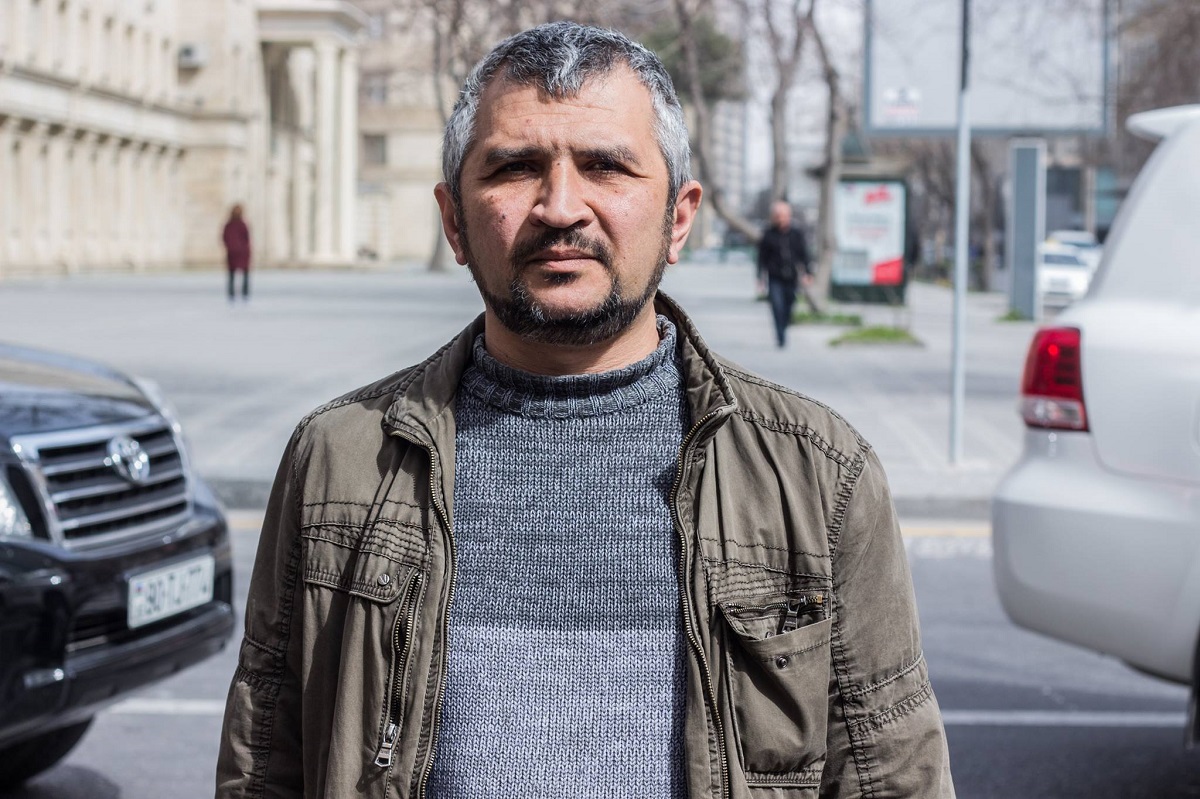
Ahmed Rakhmanov’s family has already gotten accustomed to giving interviews after their child developed autism 7 years ago. Ahmed believes that his son got ill as a result of vaccinations and has made this case known to the broader public.
We met in an isolated ward of a private hospital, where the boy was administered various injections over many hours. He was sitting on the bed, with a computer in front of him, energetically clicking the mouse wheel with his right hand. On his other hand, there were needles affixed with adhesive plaster, as well as some thin tubes leading to a small box, a modern analogue of a standard dropper.
Rafael’s mother, Ulkar Khanum (as a side note, she has a degree in medicine), shares their story:
“At first we had all vaccinations done as scheduled. But from an early age on, my son had some intestinal problems. I think it all happened due to the very first vaccinations received in the maternity hospital. However, we still didn’t cancel his vaccinations, we simply delayed it a little bit.”
Raphael developed quite normally until he was 1.5 years old. He started saying some words, short phrases, made some gestures. But then, it all started to gradually disappear.
Ahmed Rakhmanov, the boy’s father, appealed to the Ministry of Health for information about the vaccine’s composition.
“The matter concerns a period some 6-7 years ago. All vaccine annotations are now available on the Internet, but there wasn’t such a thing at that time.”
District doctors refused to provide the annotations, sending him to a chief physician. The chief physician suggested filing a letter of inquiry with the Ministry of Health.
“Finally, we made an ‘under the table’ deal and got the inserts to vaccines that were imported only from Russia and India at that time. Mercury and aluminium content in their composition exceeded the permissible norm by 30-40 times.” According to Ahmed Rakhmanov, there are two types of vaccine inserts-for ordinary consumers and for suppliers. “Vaccine inserts intended for suppliers have 13-page annotations and on the 11thpage it’s indicated that this vaccine may cause autism.”
“When your child develops autism, you will go to any length and do anything that may help,” says Rafael’s mother. “We have tried so many things, be it therapeutic horse riding or dolphin therapy, we excluded gluten, underwent chelation therapy (cleansing a body from heavy metals), as well as many other procedures. Changes come, but very slowly.”
Rakhmanov filed a lawsuit against the Ministry of Health in order to prove that those vaccines contained dangerous substances.
“I brought a light bulb wrapped in a newspaper, smashed it and asked those present to dip their finger into the powder and lick it. They looked at me in bewilderment, and I told them: “If you give mercury to children in vaccines, why don’t you yourself want to try that very mercury from a light bulb?”
Having lost the case, Ahmed Rakhmanov started exposing the Health Ministry’s vaccination policy.
“There are usually various magazines available in outpatient clinics. I was disseminating my own leaflets, inserting them in-between those magazines. Those leaflets provided extracts from the laws of the Republic of Azerbaijan, where it was clearly stated that each parent is entitled to know the vaccine composition and that vaccination isn’t a mandatory procedure. By our standards, it is regarded as anti-vaccination propaganda, because the outpatient clinics conceal information on vaccine ingredients. In the end, I suggested that parents shouldn’t yield to the medics’ coercion and rather decide individually, whether they want their child to get vaccinated or not,” says the father.
Can doctors be trusted?
Doctors state that vaccinations have nothing to do with autism. Yet, many parents still don’t believe them.
Kamran Salayev, a psychiatrist, MD, and PhD-holder, explains that mental diseases often develop as a result of a complex combination of factors: genetics, ambient environment etc. and vaccination may just expose the disease symptoms, but they, in no way, can cause it.
‘There is no link between autism and vaccines. Numerous serious studies have been conducted in this regard and their findings have been published in scientific journals. The studies have found no link between Thimerosal-containing vaccines and autism either. As a side note, despite the fact that many vaccines don’t contain Thimerosal nowadays, the rate of autism patients are still growing.”
As for arguments,say,the risk of side effects for children, doctors usually respond that any medicine has a risk of side effects, even though it saves millions of lives daily. In addition, if a child is carefully examined before vaccination, as it should be, the risk is minimized.
Don’t doctors vaccinate their children?
The apartment, where Chinara lives with her husband and their 1.5-year-old daughter, is small and neatly tidied. A huge, imposing cat meets us at the door. “It is friendly and it likes guests very much,” says the hostess. Families with little children often refrain from having pets, alleging that although it’s a domestic animal, it’s still unclean and God knows what a child may get infected with. But there are many doctors in Chinara’s family: “Due to that, I’ve always shown an interest in medicine. I know that a child’s immune system can’t be trained in sterile conditions. In addition, this cat is clean, sterilized, it doesn’t go anywhere, and also, feline diseases are not transmitted to humans.”
“Some people say, doctors don’t vaccinate their children, but that’s not true. All medics in our family got vaccinated and none of them had any problems; I got interested in the diseases that vaccines protect us from. We have a relative who has recently turned 100. There were 6 children in his family and only 2 of them attained adulthood. Many diseases were treated with bloodletting back then. I believe that vaccination is the medical achievement that allows us to live better.”
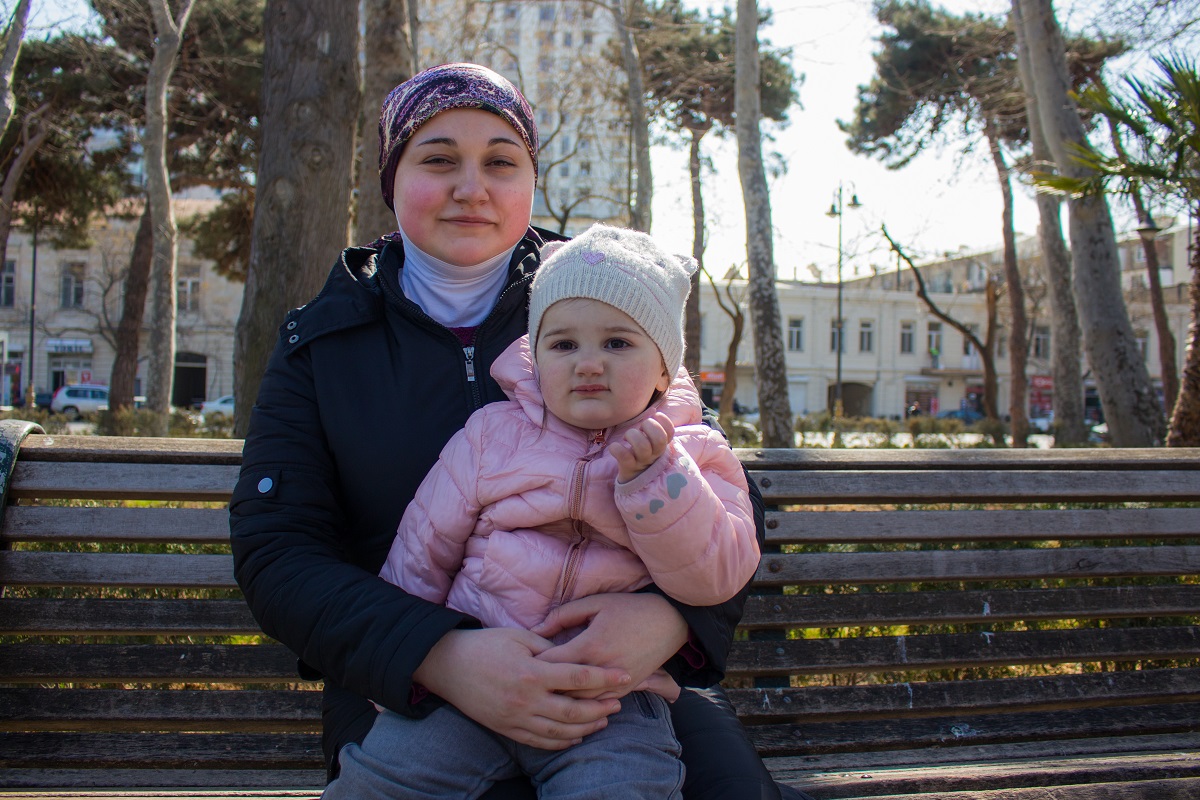
Chinara prefers to get her daughter vaccinated in private clinics. Vaccines available there are usually from European countries, like Belgium or France.
“I’m not sure about the quality of vaccines available in the state-run outpatient clinics, as well as their storage conditions,” she says. “Of course, it’s a costly matter. For example, the Infanrix Hexa 6-component vaccine amounts to AZN145. But hospital treatment, God save, will be far more expensive. I’d better economize on costly clothes or shop-bought porridges.”
Can the state be trusted?
Mistrust in vaccines is oftentimes a continuation of mistrust in doctors and state medicine, in general. Just a couple of years ago, there was a widespread fear among the young moms with regard to vaccines producedin India, whereas the district physicians themselves recommended applying to a private clinic. Is it still a pressing problem?
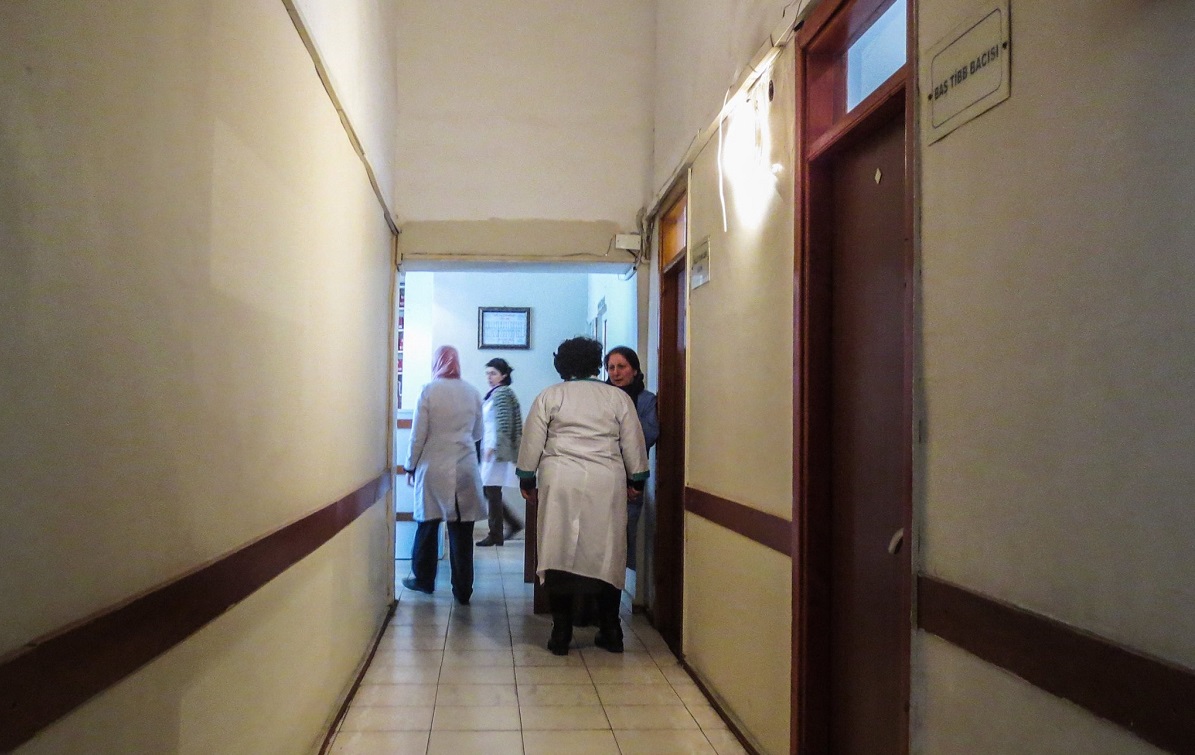
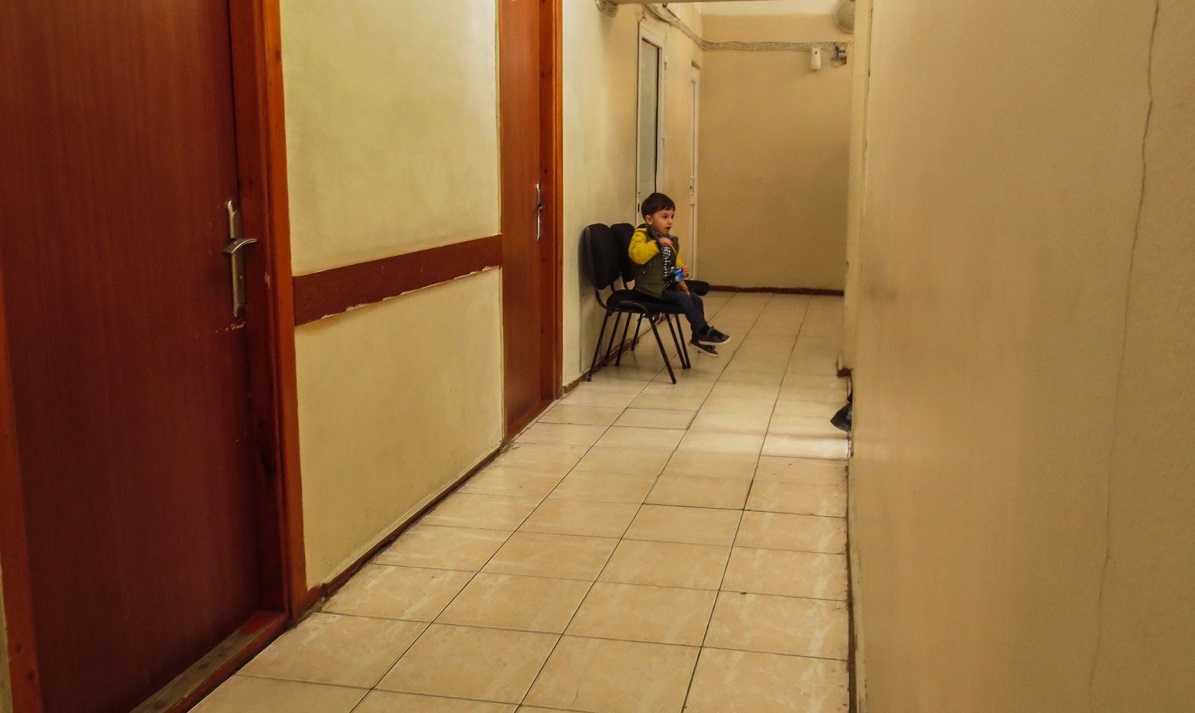
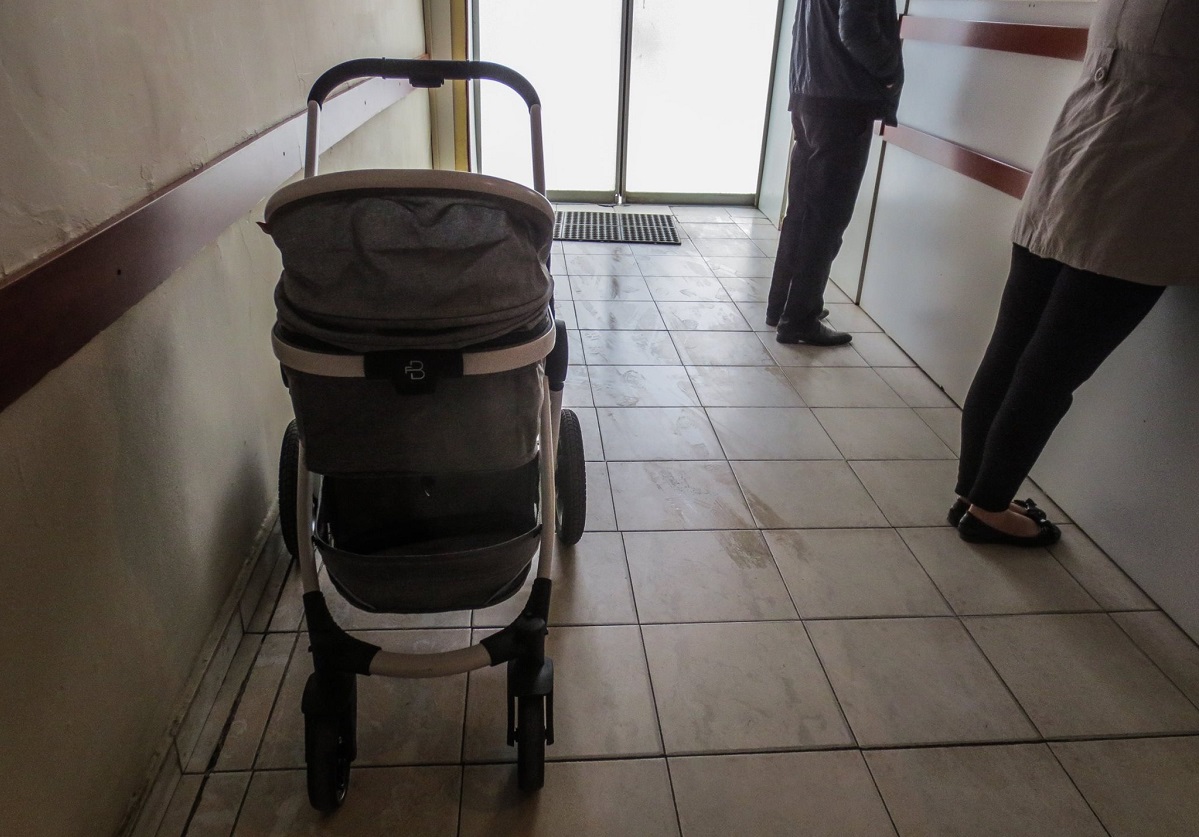
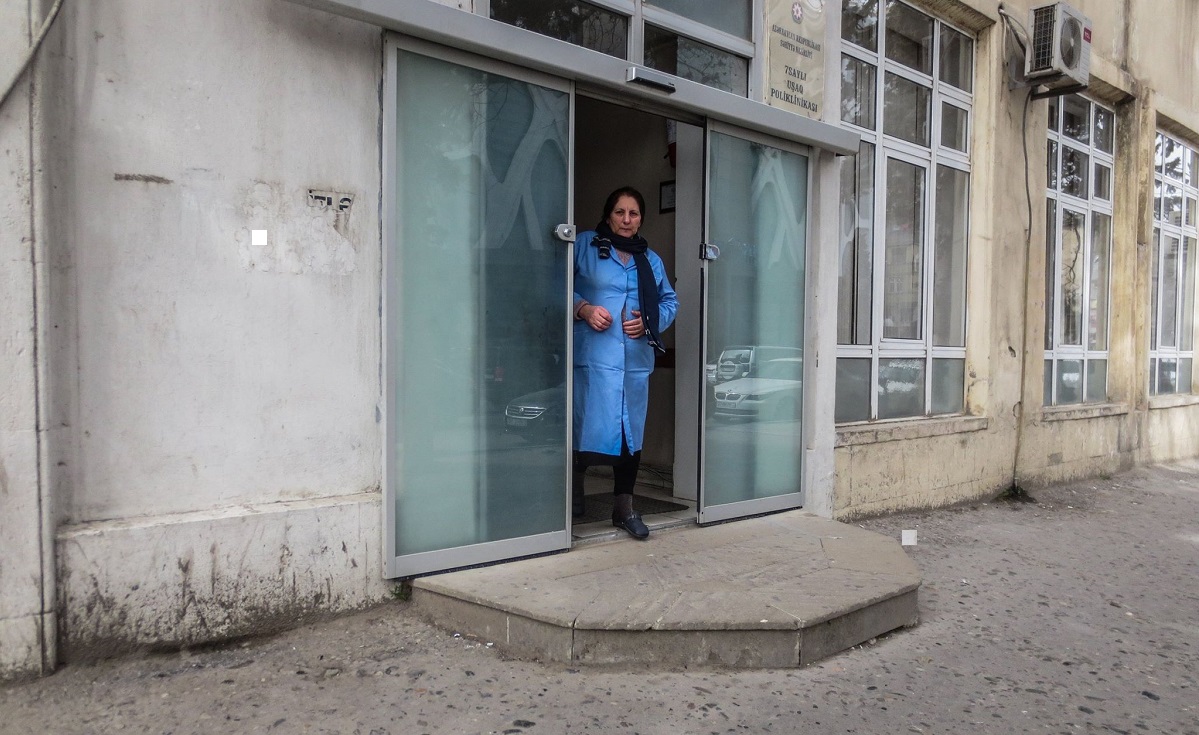
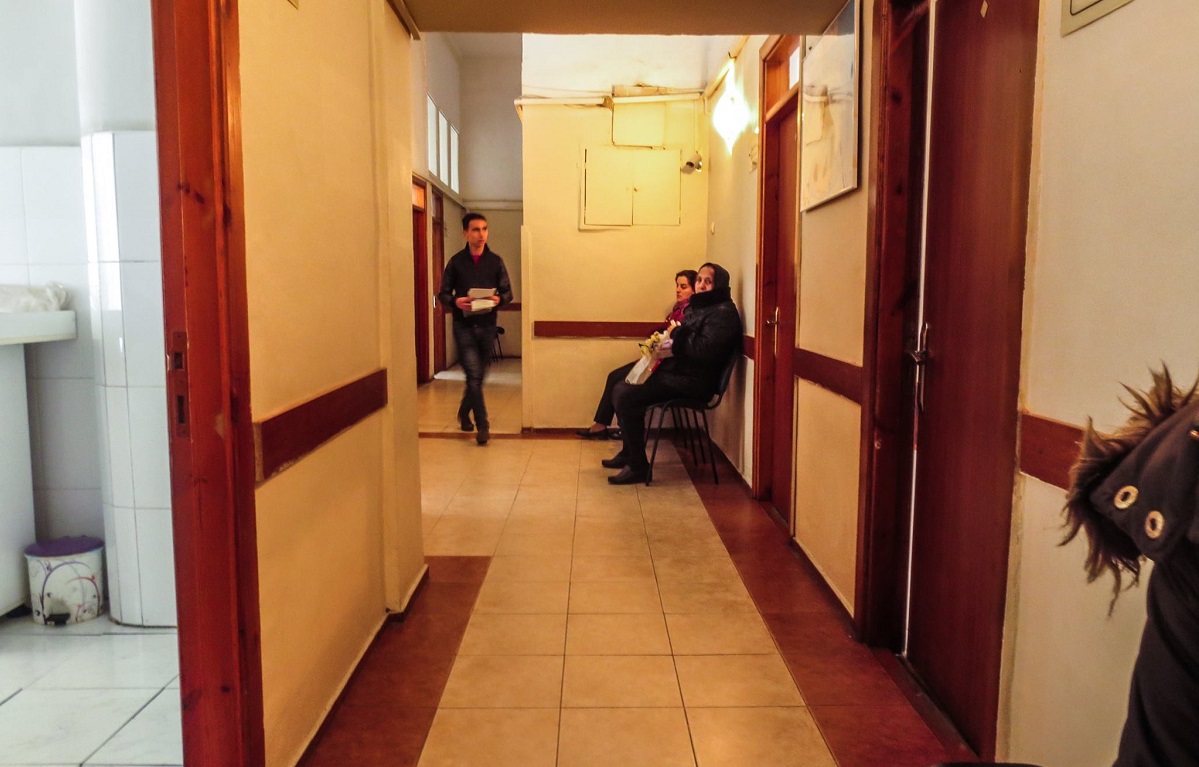
We talked to a physician at one of the outpatient clinics in Baku. He preferred to remain anonymous, like many employees of other state-run institutions, who are never sure that their management would be delighted about their communication with mass media. The physician believes that thorough examination of a child and a good-quality vaccine are a precondition for successful vaccinations and he assures us that their outpatient clinic meets both conditions.
‘Earlier, before I worked here, there were Indian-made vaccines, but they hadn’t been used for quite a long time. For example, we have Korean-made ADPT (adsorbed diphtheria-pertussis-tetanus) and ADT (adsorbed diphtheria-tetanus) vaccines. We received Prevenar, a pneumococcal vaccine, from Belgium. And I haven’t heard of any negative feedback. Also, our director is very strict: there are some vaccines with 10 doses and short expiry periods. So, once we open the box, we immediately call everyone and ask them to come and get vaccinated. If the expiry term is exceeded by even 2 hours, the director insists that they be thrown away. And she reprimands us for inflicting losses to the state.”
As for vaccination exemption, it is also sometimes the case. And in this case, the district physician is doing his/her best to convince a parent to vaccinate a child. In the event he/she fails to do it, he/she should get the parent’s written refusal. I asked whether non-vaccinated children contracted those diseases. It turned out that they did get diseased, though it happened rarely.
“An entire family recently contracted pertussis,” a nurse joined in the conversation. “4 children contracted the disease and were treated in hospital. And their parents are religious, the mother is covered like this,” she said, passing the sharp of her hand over her nose bridge. “Their religion allegedly doesn’t allow them to get vaccinated. I’m sick and tired of ringing everyone up. Once they refuse to get vaccinated, we ask them to file a letter of exemption.”
In this case, a different illness is indicated in the medical record card. According to the physician, they are not allowed to indicate an actual diagnosis, since, according to the ‘official version’, everyone should get vaccinated. Apparently for this very reason it’s impossible to figure out the precise number of those who got ill as a result of vaccination exemptions. Such statistical data isn’t available anywhere.
When asked about the quality of vaccines, the republic’s Chief Paediatrician, Nasib Quliyev, answered as follows:
“Vaccines used in Azerbaijan aren’t different from those imported to other countries. There are just 3-4 vaccine producing companies worldwide and all of them are under control of the World Health Organization. Experts, who are members of the technical expert groups, oversee the vaccine composition and manufacturing process. Afterwards, the vaccines produced by those companies are distributed around the world.”
Those vaccines are imported from Belgium, France, Italy, India, Russia and Denmark. “Some people believe that Indian vaccines are more dangerous than the European ones, but that’s not true,” says the physician. “Those vaccines are, first of all, certified by the WHO. And all the aforesaid are just fairy tales invented by private companies. The government provides free vaccines to the population, whereas the private clinics have to import vaccines themselves. That’s the reason, why they are so expensive.”
Can scientists be trusted?
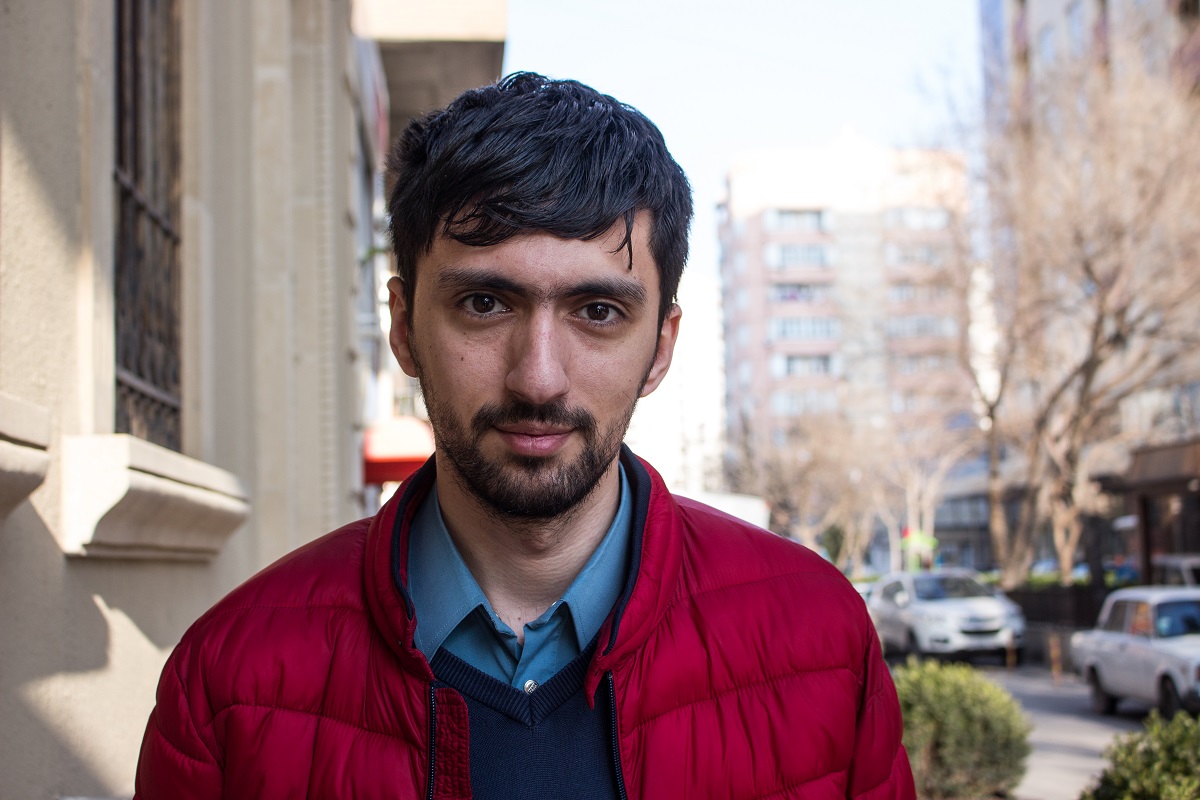
Zaur Orujev, a therapist-hepatologist and a Facebook medical consulting group moderator:
“Back in Jenner’s times, it was a subject of cartoon drawings – people were depicted with horns, hooves and tails, which implied that they allegedly turned into cows after vaccination. The same thing happens nowadays- some hilarious drawings and non-scientific articles appear in tabloids. There are even books that scoff at vaccination as a principle, in general, rather than at some particular vaccines.
It’s surprising, how the anti-vaccination movement has managed to gain such popularity without referring to some serious scientific research, because such research simply isn’t at their disposal.
Another surprising thing is how anti-vaccination activists are trying to convince us that there are disputes over vaccination issues in the scientific world. In fact, the disputes over the need for vaccination and its scheme finished a long time ago. It has long been clear to everyone that vaccination is an essential part of our health care.
All medics whom I know get vaccinated themselves and have their children and relatives vaccinated too. No matter how harsh it sounds, even the most costly vaccine is less expensive than child mycosis.
I’m well-aware of the arguments put forward by anti-vaccination activists. For example, they claim that vaccines contain mercury as a preservative and its concentration exceeds a permissible norm. Many medical preparations contain mercury-based preservatives. In addition, none of the researches indicate that this component is harmful.
You can study the materials available on the Pubmed portal, which publishes all significant medical research, but you won’t find any documents that vaccination is dangerous in any of them. Moreover, in view of the consumers’ concerns, many vaccine manufacturers have removed mercury from them, which is indicated on the FDA (Food and Drug Administration)website, vaccines not containing mercury are labelled ‘Mercury-free’. In fact, it’s just a commercial movemade by pharmacists.
A populist and erroneous allegation that vaccines cause autism has been long disproved by scientific researches».



















